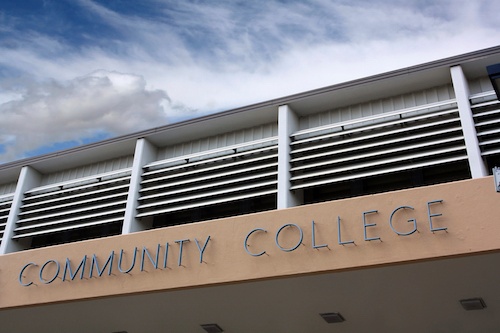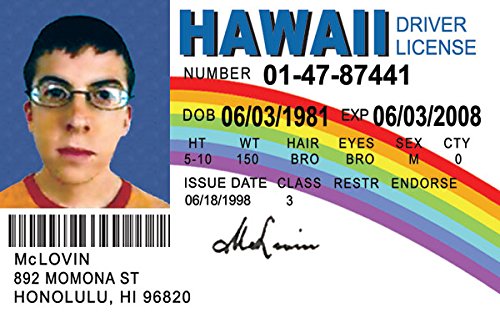
Did you know that almost half of all undergrads in the U.S. go to community college? In fact, there are 1,100 community colleges nationwide, and they enroll 13 million students!
If you're looking to make that 13 million and one, read on to learn how to apply for community college: from deciding where to apply to enrolling in classes. Before getting the ball rolling, let's review what community colleges offer their students and some good reasons to apply.
What Can Community Colleges Offer to Students?
Most community colleges offer two-year Associate's degree programs in a wide variety of academic and pre-professional fields. A growing number also offer Bachelor's degrees, though most of these programs are relatively new and limited in options.
People who run community colleges know that not every student wants to stop at their Associate's degree; in fact, many students attend community college to earn credits and transfer to a four-year college. To ease this transition, lots of community colleges have "articulation agreements" with their local state school system.
These agreements allow a student to transfer credits smoothly from community college and enter as a junior in a 4-year program. Students can also apply to schools outside of this agreement, but they may need to put a bit more individual effort into making sure their credits will transfer.
This plan, often referred to as a "2 + 2" plan, can have serious financial benefits. Community colleges tend to be more affordable than 4-year institutions, and their flexible class times make it easier for students to work part-time or even full-time jobs.
Most community colleges are open access, meaning that all students can enroll (with the exception of a few programs, like nursing and engineering). Many students appreciate the typically small class sizes and attentive professors, who tend to spend most of their time teaching rather than doing research, as with many of their counterparts at research universities.
While most community colleges are commuter schools without residential facilities, they often offer clubs, sports teams, and support services that allow students to connect with one another and school staff. These benefits form the basis of the main reasons that students apply to community college. Let's break down these reasons in a little more detail.

It's always good to clarify your reasons before taking a big leap.
Why Do Students Choose Community College?
Students apply to community college for a number of reasons. Some high school students choose a dual enrollment track, in which they take community college classes to fulfill high school graduation requirements. Some adult students return to school after working for several years to further their education or pursue a new degree or career change. While students at 4-year colleges tend to be around 18 to 22, the average age of students at community college is a little older at 28.
For the purposes of this guide, let's go over the common reasons that students who are about to or who have recently graduated high school choose community college, starting with those looking for professional training.
To Get an Associate's Degree or Professional License
Community colleges are an ideal option for students who know they want to go into certain professional fields and are seeking the training or credentials to do so. Some of these occupations include nursing, medical assistants, police officers, engineering technicians, and dental hygienists, among many others.
As mentioned above, a few programs, like nursing and electrical engineering, may ask for certain prerequisites from applicants. Usually, these are specific math and science classes in high school and a minimum GPA. Otherwise, the programs are open enrollment.
While some students apply with the goal of an Associate's degree or other certification, others enter community college intending to transfer after a year or more commonly, two years. These next three reasons apply to students looking to transfer and ultimately earn their Bachelor's degree.

Maybe your GPA needs a workout before applying to 4-year colleges.
To Strengthen Their GPA
For students planning to transfer to a 4-year college, attending community college can be a smart and strategic way to strengthen their GPA. Most 4-year colleges require a GPA of at least 2.0 or 2.5 to apply. For students who had lower grades in high school, taking community college classes can be an opportunity to bring up their grades.
They can raise their GPA, earn credits, and transfer to a college to which they may not have been accepted immediately after high school. For students looking to develop their writing and math skills, they can take the time to do so in remedial classes. Any ESL students, furthermore, can hone their language skills in English language classes.
Once students have completed a minimum number of credits (usually two years worth), they typically don't have to send SAT or ACT scores to transfer. This can also help students get into colleges they might not have been able to right after high school.
A couple of years in community college can help students strengthen their academic skills and renew their commitment to further education before transferring to a Bachelor's program.
To Figure Out What They Want to Study
On a similar note, a year or two in community college can be a good way to figure out what exactly you want to study. Rather than jumping into college feeling unsure about their direction, some students take community classes to explore their options. Since community colleges tend to be a lot less financially burdensome, they make this kind of exploration more feasible.
While most community colleges want students to apply to a specific track of study, they do allow you to switch if you want to pursue a different field of study. If you're planning to transfer, you'd just want to work closely with your advisor to ensure that you're earning the right credits for a future Bachelor's degree major.

Community colleges tend to be a lot less expensive than 4-year schools, as any financial advisor/ceramic pig worth his weight in pennies will tell you.
To Minimize the Financial Burden
I've mentioned a few times that community colleges tend to be less expensive than 4-year colleges. Exactly how much less expensive are they?
According to the National Center for Education, the average community college cost for a year (tuition, materials, other fees) was $9,574 in 2013. While this is a significant sum, it's less than half of the average for 4-year schools of $23,872.
In addition to saving money on tuition, community college students are eligible for financial aid, including federal grants, federal loans, state aid, and institutional aid. Plus they may be able to choose evening, weekend, or online classes that allow for a part-time or full-time job.
Students considered "in-state residents" get in-state tuition, which is why most community college students choose schools close to home (along with the convenience of the location). If they transfer to a state school through an articulation agreement, then they further save money with in-state tuition. Ultimately, their diploma comes from the institution from which they graduated, same as any student who attended for four straight years.
Now that we've gone over the main reasons that students attend community college, let's go over how you can apply!

Do as the Atlantic puffins do. Take things one step at a time.
How to Apply For Community College, Step by Step
As discussed above, most community colleges are open enrollment, so they don't require as much documentation as do applications to 4-year schools. Every school I know of lets you apply online. Your first step, though, is deciding where to go.
Step 1: Decide Where to Apply
Since community colleges are open access, you don't have to send applications to a few different safety, target, and reach schools as you would for other colleges. Instead, unless you're applying to an especially selective track, you can figure out where you want to go and just apply there.
If your main concern is staying close to home, as it is for many students who will be commuting, then you may simply choose the school in the most convenient location. Most states have several community colleges; Massachusetts has 15 in 24 locations, New York and Texas have over 30, and California has 113! Chances are, you shouldn't have too much trouble finding local community colleges.
Of course, you also want to make sure that the school has the program(s) you want. Research its website, email the admissions office, go on a tour, and attend information sessions. These should be available throughout the year, and usually, you can sign up through the school's website. Simply go to the website and find the "Visit Us" or "Information Session" page. That way you can make sure you find the best community colleges with the programs and resources you need.
Once you've figured out where to enroll, you can find its online application.

Step 2: Fill Out and Submit Your Online Community College Application
While many 4-year schools use the Common Application or Universal Application, most community colleges have their own online application portals. A few states offer one system for all of their community colleges, such as California with its "CCCApply" site.
Every college designs its own website, but most will have a tab where you can click "Apply." You can see a few examples of the application pages of this northeast community college, Bunker Hill Community College, along with the Community College of Philadelphia and City Colleges of Chicago (note that the Chicago schools have you fill out an initial form and then send you a student ID number to fill out the rest).
While they have some differences in design, most community college applications ask for the same details: your name, address, citizenship, residency, high school, and intended major. Most ask for your overall goal, whether you want to earn an Associate's degree or certificate, acquire personal or professional skills, transfer to a 4-year institution, or enter the workforce.
If you've already taken some college courses, then you may be able to transfer credits. Additionally, these applications ask if you're applying for financial aid. Your last step will be providing your electronic signature and hitting submit.
As for when to apply for community college, most applications are processed within 24 to 48 hours, allowing you to enroll as late as two weeks before the start of classes! I wouldn't recommend leaving your application this last minute, especially if you're applying for financial aid, but it's a nice back up in case some other plans fall through.
As you can see, you typically don't need to write essays, gather recommendations, or send SAT / ACT scores to community colleges. Generally speaking, the only document you need to provide from your high school is your diploma, GED, or transcript.
Step 3: Provide Your High School Diploma, GED, or Transcript
Community colleges want to see proof of past or upcoming high school graduation. If you don't have your diploma from graduation yet or a GED, you should send a copy of your transcript. This will show your expected date of graduation and provide evidence that you're working toward fulfilling your high school requirements.
You can get your transcript from your guidance counseling department. Then you can upload it to your online application, mail, or deliver it to the college in person. If you do have your diploma or GED, you usually don't need to send your transcript, except for the select programs with their own requirements. You can just send one of those documents.

If your school needs your ID, make sure yours has a first name.
Step 4: Provide Proof of State Residency, If Applicable
If you're applying for in-state tuition, then you may need to provide proof of in-state residency. Students who have attended high schools in the same state as the community college for more than a year usually don't need to send any further evidence. Your transcript will show that you lived and attended school in-state.
If you didn't attend high school in the state or the college asks for further documentation, you could send a state driver's license, local bank account, vehicle registration, voter registration, or state or federal income taxes with in-state residential addresses. All of these should be dated at least a year previous.
If you're a dependent, then the document you send should belong to a parent. If you're an independent, then it should belong to you.
If you're not sure what steps you need to take here, you should contact the community college to get their advice. You wouldn't want to miss out on financial aid due to confusion with the application. The community college should contact you if there are any issues, but it's still worthwhile to be proactive and ask them for guidance.
Step 5: Submit Your FAFSA
Another important financial consideration is applying for federal financial aid with the FAFSA. Your timeline for this may actually fall earlier than your application to community college. The FAFSA application opens up on January 1. As the U.S. Department of Education itself suggests, you should submit your FAFSA as early as possible "to ensure that you do not miss out on available aid."
Financial aid is another good reason to plan early for college. The FAFSA will ask you to list the colleges to which you're applying so it can send them your calculated financial need and estimated contribution. If you change your plans, you can sign back in and add a recipient. However, the smoothest plan is to list your community college at the time you apply to FAFSA.
In addition to applying for federal financial aid, you might search for and apply to other external scholarships. There are all sorts of scholarships out there with different requirements, so you might find one that seems made just for you!

The new student orientation will give you a chance to learn about the school, meet new people, and not have to worry about forgetting anybody's name.
Step 6: Attend a New Student Orientation
As mentioned above, it's a good idea to attend a campus tour and an information session before you apply to learn more about your prospective school. Many community colleges also hold orientations for new students. These usually span a day or two and give you information about financial aid, placement testing, student and campus resources and policies, and academic guidance.
They may also have you set up a school account and email address. If your school offers its own online portal, then you'll probably do your class registration and other communication through that.
Step 7: Take Placement Tests in Math and English
One unique requirement of community colleges is their placement tests. After the college processes your application, you'll be invited to take placement tests to determine your level for math and English classes.
While you don't have to take the SAT or ACT to enroll, you may find yourself exempt from these placement tests if you have a minimum SAT or ACT score. These vary from school to school, but tend to be around a 450 on SAT Reading or a 47 on ACT English and Reading combined. For math, schools usually want to see around a 450 on SAT math or a 22 on ACT math.
Placement tests don't affect whether or not you get into community college. Instead, they help to determine what courses you should take in your first semester. It still may be useful to review math and English material before taking them to make sure you don't end up in a class repeating much of what you already learned in high school.

Your advisor's there to help!
Step 8: Meet With Your Advisor
By the time you meet with an advisor, you should be all set with enrollment and placement testing. Your advisor can talk to you about the classes you want to take, as well as give you guidance about requirements and classes that could transfer credits to a 4-year school, if that's in your plans.
You can also ask her about opportunities outside of class, like cultural clubs, sports, language groups, and support services. To make the most of this meeting, make sure to research classes and prepare questions.
Step 9: Register for Classes
Finally, you'll register for your classes! Full-time students usually take about 4 to 5 classes per semester. The first semester for first years tends to be highly structured, so you may not have a lot of choice with these first few classes.
If your registration is delayed, double check that you've paid all your fees and provided all required documentation, like proof of immunization (required for all college students when they start as freshmen - and grad students too, for that matter).
Once you've registered for classes, you're all done with the application process! It's time to settle in and get studying! Now that we've gone over the steps for how to apply for community college, is there anything else you can do to get ready?

To fully prepare, you must cross a mountain range with nothing but a walking stick and a backpack full of books.
How Else Can You Prepare for Community College?
While you can technically apply to community college at the last minute, you'd be much better off planning early, like in the winter or spring of senior year. Spend some time researching local community colleges or out of state schools and their programs. Attend information sessions, go on a tour, and try to speak to current and former students about their experiences.
You should clarify your reasons for attending and overall goals to make sure you're choosing the best classes and earning the credits you need. Part of this research may also involve learning about the community college's articulation agreements with state schools and other 4-year schools to which you might ultimately apply. While you may not be sure exactly what 4-year college you'll eventually transfer to, you can still work closely with your advisor to learn about credit requirements and how and when to apply to Bachelor's programs as a transfer student.
As you attend info sessions and meet with your advisor, make sure to prepare some questions about application requirements, class registration, and/or transfer agreements. By gathering all the information you need, you can make the most of your time at community college to learn, earn credits, and work toward your long-term academic and professional goals.
What's Next?
Are you also considering 4-year colleges in addition to community colleges or just wondering what the application process is like? To learn more about the process, check out this complete guide to applying to a 4-year college.
Are you applying to college, but your GPA is lower than you'd like? Don't be discouraged! Read this guide to learn how to put together a strong college application despite lower than average grades.
Colleges can get expensive, so you want to be on the ball about financial aid. This comprehensive guide goes over everything you need to know about applying for financial aid, step by step.





